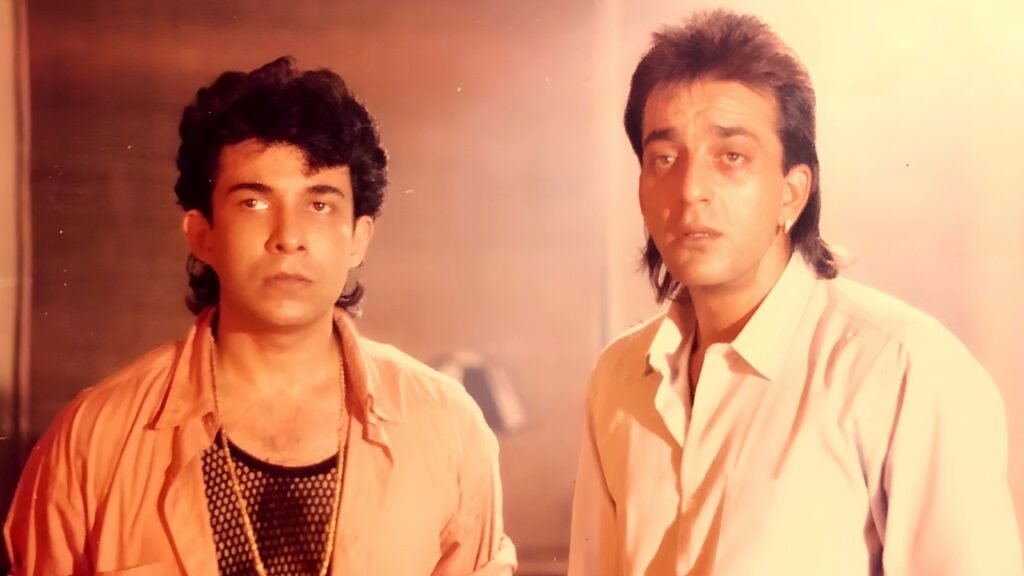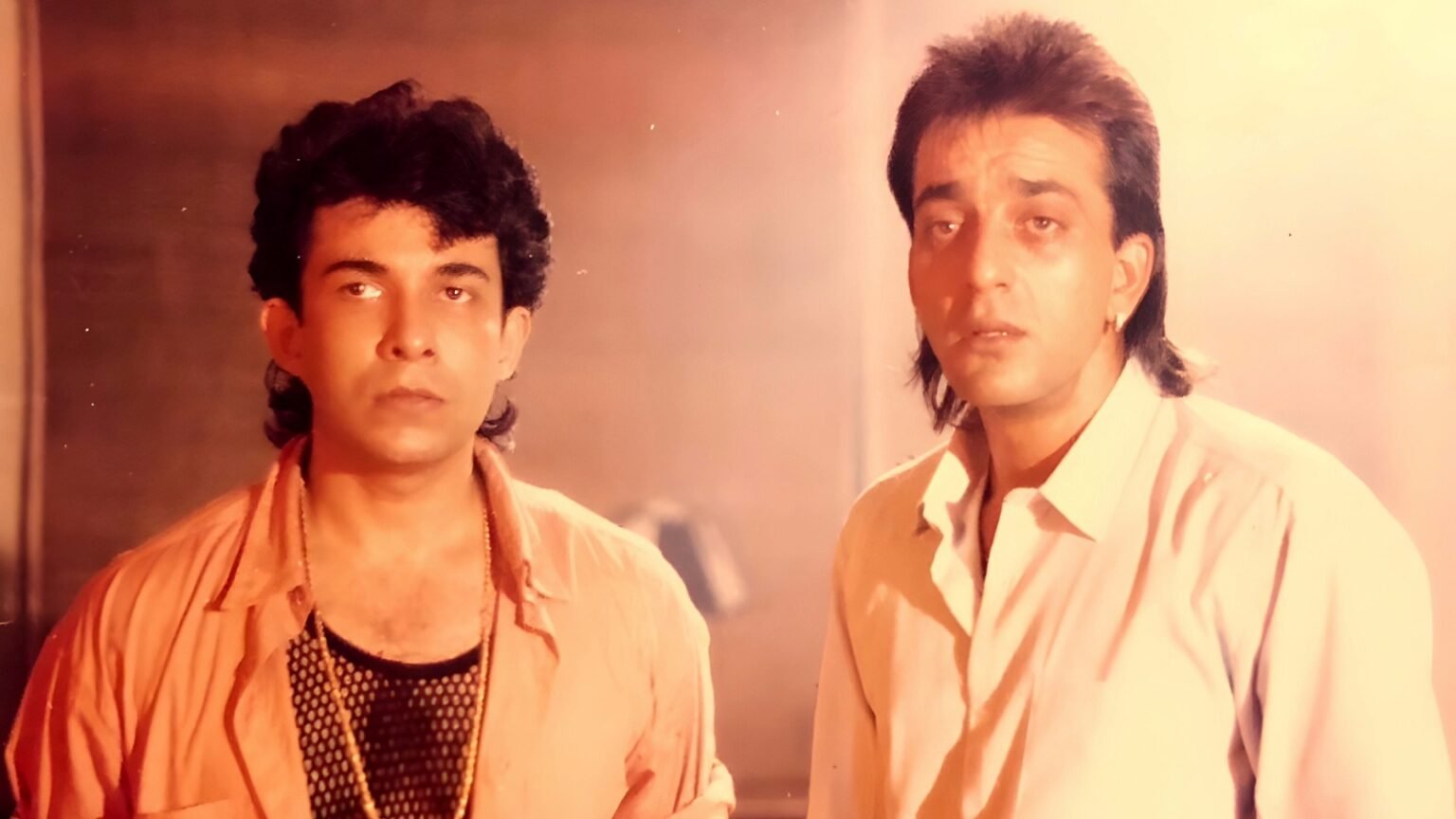Deepak Tijori stands as one of Bollywood’s enduring faces, a versatile actor and director whose decades-long career has made him both an industry staple and a trending headline maker. From iconic films to personal and professional controversies and a memorable stint in Bigg Boss, Tijori’s story is punctuated by resilience, reinvention, and drama.
Early Life and Bollywood Entry
Born August 28, 1961, Mumbai-raised Deepak Tijori hails from a creative Parsee family, with a mother steeped in dance and radio artistry, a profound influence on his craft. His academic journey began at Narsee Monjee College, but his destiny changed amidst the theatre groups that included future stalwarts such as Aamir Khan, Paresh Rawal, and Ashutosh Gowariker.
Tijori’s early years in Bollywood were a struggle, marked by persistent auditions and minor roles, including odd jobs at “Cine Blitz” magazine and stints as a hotel manager. The turning point came with Mahesh Bhatt’s “Aashiqui” (1990), in which Tijori played Balu, a role that made him instantly popular among young moviegoers for his quirky hand gestures.
Iconic Roles and Industry Impact
Deepak Tijori’s versatility led him to key supporting roles in a string of major hits. After “Aashiqui,” he was cast in “Sadak,” “Khiladi,” and the coming-of-age cult classic “Jo Jeeta Wohi Sikandar”. Tijori’s portrayal of Shekhar Malhotra, a competitive, cocky cyclist, became iconic despite early setbacks, including rejection and reshoots that replaced the original cast. Aamir Khan championed Tijori’s inclusion, which helped revive the shelved project and solidify Tijori’s place in the film’s legacy.
Over the years, Deepak Tijori worked with superstars like Shah Rukh Khan in “Kabhi Haan Kabhi Naa” and “Anjaam,” starred in “Ghulam,” “Baadshah,” “Mahesh Bhatt’s Naajayaz,” and appeared in the critical success “Vaastav: The Reality”. His lone lead performance in “Pehla Nasha” (1993), though critically panned, is a testament to his willingness to take chances.

Transition to Direction and Television
Not content with just acting, Deepak Tijori ventured into directing with the adult-themed “Oops!” (2003). Though initially controversial, the film marked his bold vision in tackling unconventional subjects. He further helmed “Fareb” and “Khamoshh… Khauff Ki Raat” in 2005, adding edge to his directorial profile despite mixed critical responses. His comedy “Tom, Dick, and Harry” (2006) and thrillers like “Fox” (2009) reflected his drive for experimentation, even when critics were less forgiving.
Tijori’s production house, Tijori Films, delivered several television successes, including “Rishtey,” “Saturday Suspense,” “Dial 100,” and the award-winning mini-series “Thriller at 10 – Fareb”.
Personal Life and Public Drama
Tijori’s personal narrative took a dramatic turn in 2017 after a legal dispute revealed his marriage to Shivani Tijori was never valid, she hadn’t divorced her previous husband. The discovery led to heated public and legal battles, with Shivani demanding maintenance and Deepak feeling pressure despite no legal obligation. The controversy strained his relationship with their daughter Samara, whose own career in entertainment began making headlines in more recent years.
The drama didn’t end there. Tijori faced eviction from his Goregaon society due to neighbourly complaints and non-payment of dues, leading to a prolonged legal tussle that ended with a favourable verdict in 2014.
Professional Setbacks and Triumphs
Deepak Tijori’s career, though full of bright moments, has also been marred by missed opportunities. He notably lost the lead role in “Maine Pyar Kiya” to Salman Khan, gracefully accepting the director’s choice. His exclusion from other key projects, despite successful auditions, underscores the unpredictability of Bollywood.
His recent return to acting and directing includes projects such as “Tipppsy” and “Echoes of Us,” in which he starred opposite Iulia Vantur. In 2024, Tijori also filed an FIR against producer Mohaan Nadaar for being cheated out of Rs 2.6 crore in a co-production deal, a legal saga still fresh in the news. Another case involved film producer Vikram Khakhar over an allegation of Rs 1.75 crore in cheating, with Tijori pursuing legal remedies after the deal soured.
Bigg Boss: The Controversial Reality TV Debut
Deepak Tijori’s stint on Bigg Boss Season 1 in 2006 remains as dramatic as his film career. Originally, Salil Ankola was a housemate but was abruptly ordered to leave by the Bombay High Court due to contractual obligations with Balaji Telefilms. Tijori replaced Ankola on the 14th day, only to find his wife, Shivani, rallying friends and media to get him evicted from the house. His time inside saw him observe and later publicly comment on the show’s constructed reality, denying that Bigg Boss was scripted but calling it “a laundered reality”.
Despite suggesting he’d create a film based on his Bigg Boss experience, Tijori ultimately moved on, using the episode as just another chapter in his multifaceted career.
Recent News and Media Presence
Even in 2025, Deepak Tijori remains a headline maker. He was named the face of DIGJAM, an iconic Indian suiting brand. Nostalgia for his 90s heyday is palpable on social media, with industry veterans like Pooja Bhatt commemorating him and fans celebrating movies that “live on forever in your heart”. His daughter Samara’s blossoming acting career also draws media attention, marking a new Tijori generation in Bollywood.
Awards and International Recognition
Adding to his acclaim, Deepak Tijori recently won the Best Actor award at the Barcelona International Film Festival for “Echoes of Us,” reaffirming his artistic prowess on a global stage.

